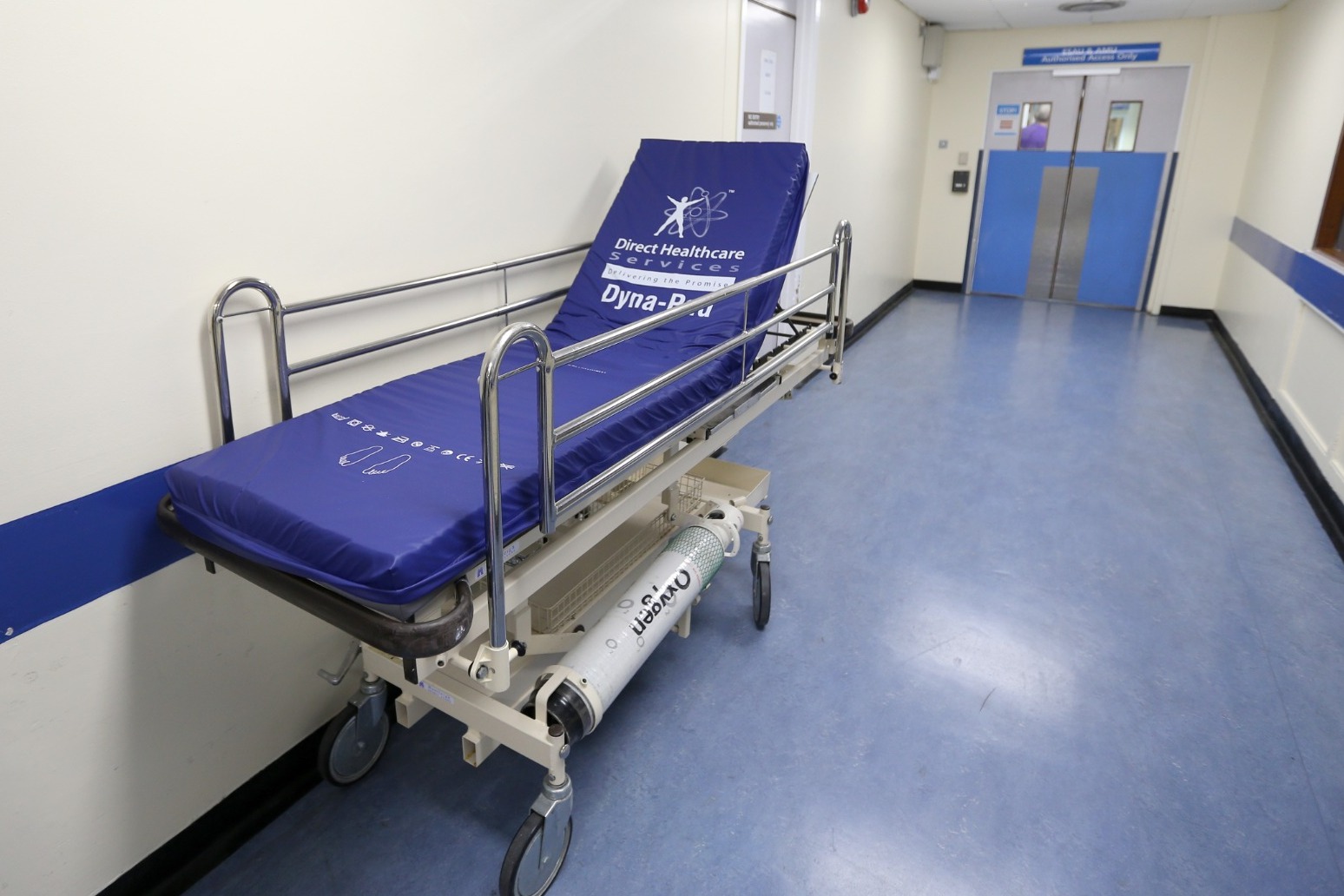
Nurses warn of 'national emergency' in NHS
The Royal College of Nursing say patients are dying in corridors and left without access to oxygen
Nurses have declared a “national emergency” in the NHS, warning that patients are dying in hospital corridors.
The Royal College of Nursing (RCN) revealed patients are being left without access to oxygen and enduring intimate examinations in inappropriate crowded areas.
At the start of the union’s annual conference in Newport, South Wales, acting general secretary Professor Nicola Ranger will use her keynote speech to declare a national emergency, releasing a new report on clinical care in inappropriate areas.
The RCN is calling for mandatory reporting of patients cared for in corridors to show the extent of hospital overcrowding.
Patients are regularly treated on chairs in corridors for extended periods of time, sometimes days, said the RCN.
A survey of almost 11,000 frontline nursing staff across the UK showed how widespread the practice has become, said the RCN.
When asked about their most recent shift, almost two in five respondents reported delivering care in an inappropriate area, such as a corridor.
Almost seven in 10 said the care they delivered in public compromised patient privacy and dignity.
Prof Ranger will tell the 3,000 conference delegates that the situation is a “tragedy” for the nursing profession.
“Our once world-leading services are treating patients in car parks and store cupboards.
“The elderly are languishing on chairs for hours on end and patients are dying in corridors. The horror of this situation cannot be understated. It is a national emergency for patient safety and today we are raising the alarm.
“This is about honesty and accountability. Care being delivered in front of a fire exit isn’t care. Signing ‘Do not resuscitate’ orders in a corridor isn’t care.
“Receiving a cancer diagnosis in a public area isn’t care. It’s a nightmare for all involved. We need to call it out as nursing staff, and health leaders and ministers need to take responsibility.”
One nurse, working in a hospital in England, said: “Patients are soiled for long periods of time because there is nowhere to change them. I’ve witnessed DNACPR (do not attempt cardiopulmonary resuscitation) decisions being signed in the corridor.
“I’ve had to move a deceased patient into a corridor in order to generate resus (resuscitation) capacity before. It’s horrific.”
Nursing staff revealed that corridor care has become the norm in almost every corner of a typical hospital setting.
Prof Ranger will say: “Treating patients in corridors used to be an exceptional circumstance. Now it is a regular occurrence and a symptom of a system in crisis.
“We are right to be angry that this once abnormal practice has become normalised.”
Staff describe patients receiving cancer diagnoses and intimate exams in public areas.
One nurse said: “You wouldn’t treat a dog this way.”
Another was instructed to “let a patient wander” because there was not enough room on the ward.
Another nurse recounted a patient with dementia being in a corridor for hours without oxygen.
They said: “When I arrived, she was in a wheelchair on a corridor with her daughter. She was extremely agitated, crying and confused. This care environment for any patient, never mind with dementia, was completely inappropriate.”
The new report says corridor care is “a symptom of a system in crisis”, with patient demand in all settings, from primary to community and social care, outstripping workforce supply.
The result is patients left unable to access care near their homes and instead being forced to turn to hospitals.
Saffron Cordery, deputy chief executive at NHS Providers, said: “These findings reflect the severe pressures facing the NHS, including high demand, lack of bed capacity and delayed hospital discharge.
“No trust leader wants to treat patients in corridors, store cupboards or other non-clinical areas as it compromises quality of care, patient privacy and dignity.
“The deeply concerning experiences shared by frontline nurses highlight the urgent need for more strategic investment and planning.
“It’s vital the next government properly address the root causes of hospital overcrowding.
“Improving social care and community services is also key to ensure patients can be discharged safely and promptly, freeing up hospital beds for those most in need.”
Wes Streeting, shadow health secretary, said: “NHS nurses are sounding the alarm on the appalling state of the NHS after 14 years of Conservative neglect.
“Patients and staff alike can see that the NHS is broken. Only Rishi Sunak and his party won’t acknowledge that the crisis in the NHS is a national emergency, and if they can’t diagnose the illness, then how can they be trusted to cure it?
“The NHS is crying out for change and only Labour has a plan to deliver it.”
Paul Rees, chief executive of the National Pharmacy Association, said: “Funding pressures have been impacting on all parts of the health service, including vital local community pharmacies.
“Community pharmacies have seen a 40% reduction in their real-terms funding since 2016.
“This has resulted in a sharp rise in pharmacy closures, with 10 pharmacies closing a week this year alone and many other pharmacies reducing the services they are able to offer their patients.
“It’s imperative that any incoming government addresses the crisis in primary care and the looming cliff-edge facing pharmacies, which for millions of people are the front door to the NHS and a crucial source of frontline health care.”
Published: by Radio NewsHub